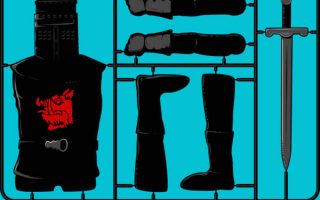Anger is a survival skill. Arguably, anyone claiming to be angry, acting out with reckless abandon and disregard for other people’s safety and emotional psychology, then saying it is actually a complex emotion, is kidding themselves.
People who are angry by nature — meaning prone to egocentrism and emotional hedonism, raging, and public menacing or sinister sulking and withholding of affection from friends, family, or loved ones — are typically described as Cluster B personality types. They are angry people who are angry without needing to have a logical or any form of justifiable and situation-specific reason to be.
Individuals who are angry tend to use bravado or bravada to bellow and to get what they want. Folks who use threats of pitching a temper tantrum or a fit to get what they want tend to score high when measured for grandiosity as well as egocentrism.
When a peer group is “angry” they tend to act like a mob. Mobbing their targets or preferred scapegoats with little to no regard for anyone who gets in their way when they strive to do harm to their mark or marks is common in communities who are nurtured by leaders to embrace socially violent and anti-social behaviors as things that are successful and normal.
MentalHealth.net confirms, “Cluster B is called the dramatic, emotional, and erratic cluster.”
It includes:
- Borderline Personality Disorder.
- Narcissistic Personality Disorder.
- Histrionic Personality Disorder.
- Antisocial Personality Disorder.
They add, “Disorders in this cluster share problems with impulse control and emotional regulation.”
Mayo Clinic professionals additionally share, “A personality disorder is a type of mental disorder in which you have a rigid and unhealthy pattern of thinking, functioning and behaving. A person with a personality disorder has trouble perceiving and relating to situations and people. This causes significant problems and limitations in relationships, social activities, work, and school.”
Adding, “In some cases, you may not realize that you have a personality disorder because your way of thinking and behaving seems natural to you. And you may blame others for the challenges you face…”, the trusted health information source reveals the most common belief of angry people and of their enablers.
People raised in homes with someone who has a rage-prone psychiatric disorder or anger issues may never realize the person raging has an actual medical condition causing their neurological symptoms. Once a brain scan for empathy and to test neuroplasticity can be done on the problem person, they and everyone they know has a much greater chance of feeling spiritual and social relief.
People who score low for EQ, high for impulsivity, and who present with an angry demeanor in general — meaning people who are either unable or unwilling to control their socially and emotionally hedonistic impulses to do things like rage, to batter, or who fight using socially violent words and brutal behavior are the type of people who meet diagnostic criteria for having actual fully developed Cluster B personality disorders.
Expect people who are angry by nature rather than appropriately at specific guilty people or unjust events to show ongoing forensic psychology issues related to (but in no way limited by) the following toxic personality social and mind control related issues: low mood, anger, hopelessness, worthlessness, or irritability.
Expect people who are Cluster B by nature to have little to no conscience or care about how their rage or anger issues impact the people they frighten or harm.
Expect people who have been raised believing if they pitch a fit or throw some kind of epic scary temper tantrum that they will be allowed to have their way to be low to no emotional intelligence apparent on an empathy brain scan, to have a high level of Machiavellianism to their nature, to have lived a life with a toxic parent or toxic caregivers at their formative ages, and to have grown up surrounded by typically profoundly co-dependent personality types prone to enabling the problem person’s worst behavior.
And expect that same problematic or toxic person to tell you all the reasons why they are above the social and moral law — allowed to act like a bully or some kind of social terrorist at will or on a whim because they — they — are above the law. They are the first to deny abusing anyone, to claim if they did whoever got hurt deserved it, and to prance around as if they are Mike Tyson off his meds and everyone else is that person’s Robin Givens.
If you don’t understand why the allegory is disturbing, congratulations. It means you have more than likely never been the preferred scapegoat or handy-dandy available target for bullying or physical punishment by a person who claims because they are angry they are allowed or have some kind of right to lay hands on or to use violent word choices to do harm to another peer group or person.
Righteous Indignation at a situationally appropriate person or event is appropriate and a complex healthy emotion. Being mad at the boss and coming home and kicking the dog after yelling at the wife and kids or taking a difficult day out on a child or stranger on the road is acting arguably anti-social bordering on Malignant Narcissism and comorbid Psychopathy.
Most abused people strive never to harm other humans or any sentient creatures. Angry people like the feeling they get harming and frightening their targeted marks, treating everyone like objects and people who are lesser to them.
Angry people are most unpleasant as assessed by kinder, gentler people — by people who choose to assume personal responsibility for things like their thoughts, moods, behaviors, and actions.
« Back to Glossary Index



